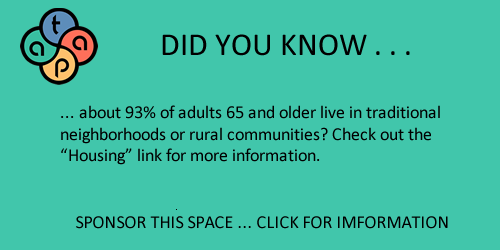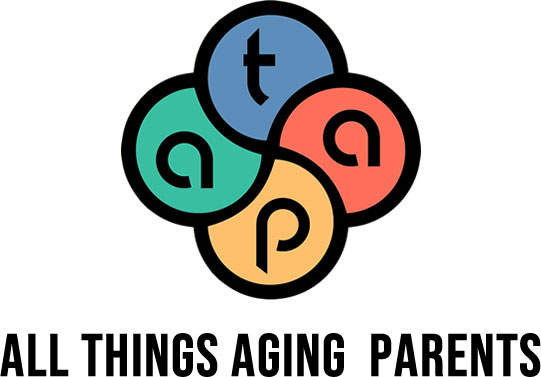Previous Insights
Reframing Guilt as Regret
Marianne Smith
Let’s talk about guilt. Ever since Adam and Eve ate the proverbial apple men and women have felt guilty. Sometimes that guilt is justified – we all know someone who has done something awful that they should feel guilty about – and sometimes it is just us being oversensitive. What about guilt regarding our parents?
My father is gone now but during the last year of his life nearly every time I saw him he complained about something. Now that wasn’t my father’s personality – he was generally cheerful and grateful, with a kind word for everyone. But his emotions about losing his independence changed his outlook. Usually, at the end of our visit, he would say, "I know this is not your fault, but…" He never blamed me for anything, he just wanted me to know what was going on. Which did nothing to eliminate the guilt I felt because I was not able to provide them the care that they needed at my home as I'd done for the last 9 years.
I felt guilty that I didn’t like to eat the same food as they did. I felt guilty that he felt guilty about needing me to drive him somewhere. I felt guilty that they needed to live in an assisted living community. Come to think about it, I felt guilty that my mother had dementia and needed help and that my father couldn’t be as independent as he used to be.
I remember the afternoon I was driving home with my husband and said to him, “You know what? I’ve just decided that since feeling guilty is inevitable, then I’m going to accept that fact and move on and get things done. If there’s no avoiding feeling guilty, I might as well embrace it.”
All of you counselors out there just did a facepalm and said, "Oh no!" with a collective groan. I used an unhealthy coping strategy. But wait, let’s get it all out. Time to be honest about those things we think in unguarded moments that we don’t share with others.
I love my parents and I’ve always had a good relationship with them, but even so, sometimes I grew weary with the burden of caring for them. But what about those who don’t really like their parents? Some parents are hard to love, but still need caregivers. Some caregivers have siblings who refuse to step up and help. (As if that was ever an option for you!) What about only children who don’t have anyone else to help? They didn’t choose this life, but it’s out of their control, and they're resentful of that. But at the same time, they feel guilty that they feel resentful.
And what about the rest of my life – my kids never get enough of my undivided attention. Date night with my husband? A thing of the past. I go to work but my focus is always divided. And my friends? Well, I might as well have moved to another country, for as much as I get to see them.
Anger. Resentment. Guilt. These are pretty emotion-laden words. But it’s where many of us live. But what if we could change that? What if change meant replacing one word?
Regret [ri-gret]: verb (used with object), re·gret·ted, re·gret·ting
- to feel sorrow or remorse for
- to think of with a sense of loss
- synonyms: mourn, sorrow, grieve
What if each time we used the word “guilt” in a sentence we reframed it with the word “regret”? To substitute sorrow for blame? Mourning for shame?
In our unguarded, innermost thoughts we might say, “I’m so tired of carrying the weight of responsibility for my mom. But I feel guilty that I feel that way.” But if we reframe our thinking it becomes, ”I’m really am tired. I regret that my mom is not able to be as independent as she used to be.”
“It sucks that I’m the only one here to take my dad to the doctor, but I feel guilty that I’m angry,” becomes, “It sucks that I’m the only one here to drive dad. I regret that he can’t still drive himself.”
“I’m going to miss another movie night with my friends. I feel guilty that I never see them,” becomes, “I’m going to miss another movie night. I regret that I don’t see them often.”
Regret changes the focus of our feelings. When we feel guilty about something over which we have absolutely no control, we put the blame on us. Which doesn’t make sense – how can I feel guilt over my mother’s dementia? Did I give it to her? How can I feel guilt over my father’s loss of independence? Was I responsible for his diminished abilities? But regret, now that makes sense. Do I regret that my mother has dementia? Absolutely, each and every day. Do I regret that my father lost his independence before his death? Oh yes. Yes, yes, yes.
I can feel sorrow and grief – regretful – in my parents’ circumstances. I can feel sad and disappointed – regretful – in the fact that my life is so busy that I can’t give as much focus to each person as I wish I could. But I can also refuse to take on the blame for feeling bad in those situations. I can pass on the guilt, thank you. Regret, sure, give me seconds on that one. But no more guilt.
Caregivers are usually doing the job of several people, or at least it feels like that, and sometimes it feels like we are carrying the weight of that, as well. If we could drop the load of guilt that is perhaps the heaviest weight of all, imagine how that could improve our lives! Sure, it will take discipline – every time we hear the word “guilt” come up in our brain we have to replace it with the word “regret” – but this is a do-able strategy! Maybe this can bring us hope!


The information contained in this website is provided as a service to the Internet community, and does not constitute legal or medical advice. All Things Aging Parents works to provide quality information, but we make no claims, promises or guarantees about the accuracy, completeness, or adequacy of the information contained in or linked to this website. Information should be researched and used in light of the specific circumstances of each case. Because laws and policies are constantly hanging, nothing provided here should be used as a substitute for professional advice.
Senior care is a challenging and constantly changing topic. In order to stay relevant to your needs, ATAP welcomes your comments and suggestions. Please email us at: info@allthingsagingparents.com
All Things Aging Parents helps families during the overwhelming times of changing family dynamics and responsibilities. We don't want to add stress to this process so we offer our information free of commitment. Our sponsors make this possible. Please click here for more information about becoming a sponsor.
Privacy Policy

